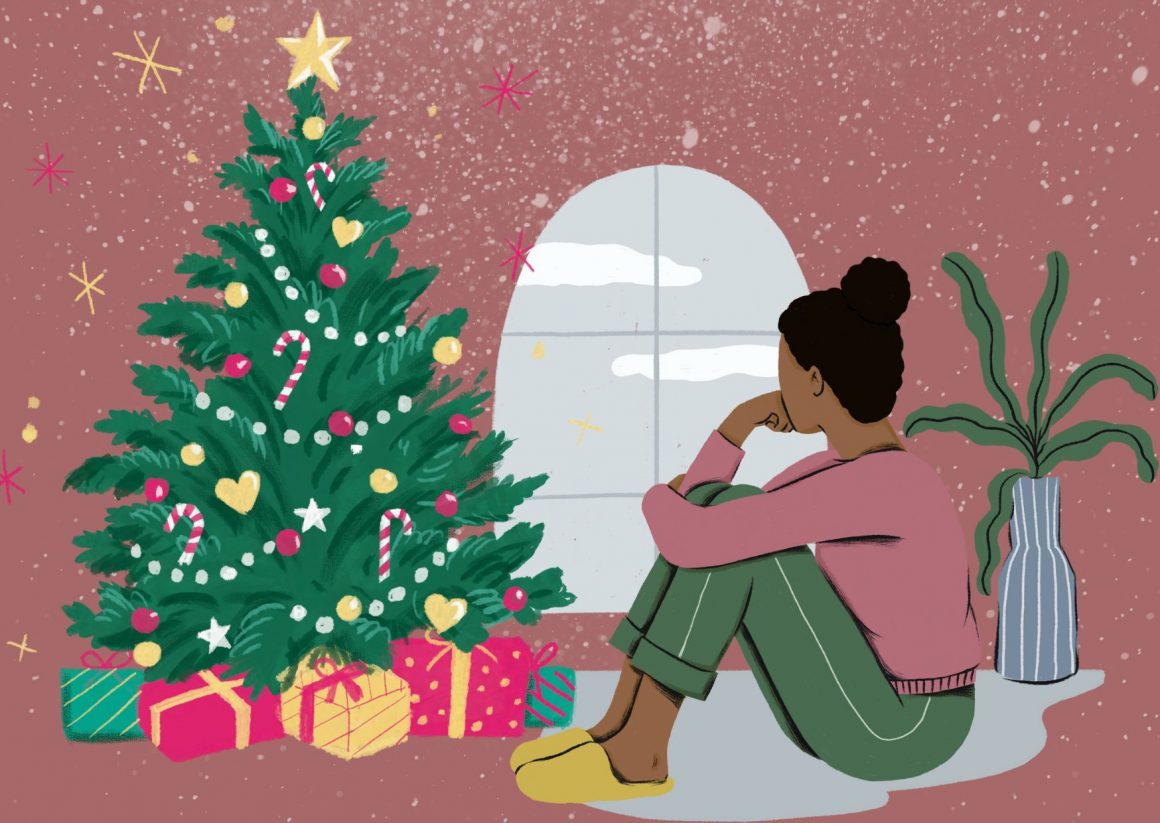
The Christmas Blues: expert advice from Naomi Den Haan
By Josie Simon, December 9 2024—
As the weather cools and days shorten, the holiday season arrives, bringing mixed emotions for many. While it’s often a time of festive lights and gatherings, it can also lead to the “holiday blues.” For students, this joyful season can become filled with pressure, stress and sometimes loneliness.
During a recent conversation with Naomi Den Haan, a registered social worker and Harm Reduction Support Advisor at Student Wellness Services, the nuances of holiday depression came into focus. Haan’s work revolves around supporting students, particularly in mental health and substance use. Our discussion delved deep into the holiday blues, examining how they manifest in students’ lives and exploring effective methods for addressing these challenges.
The holiday struggle
The holiday season coincides with exams, intensifying stress and fatigue for students already facing academic demands. Haan acknowledges this, noting, “People have tons of competing demands with classes.” It’s a time when students are pulled in various directions, facing academic, social and financial pressures simultaneously. The hustle and bustle can lead to feelings of fatigue and stress, overshadowing the anticipated joy of the holidays.
Loneliness is another significant factor contributing to the holiday blues among students. Haan notes the challenging transition many experience when moving into university life, often finding themselves distanced from their established support networks.
“[You’re] learning about yourself, about other people, about what you need,” Haan reflects, highlighting students’ personal growth and challenges during this time.
Coping mechanisms
Haan offers pragmatic coping strategies that stem from her expertise in harm reduction and mental health support. At the core is the principle of meeting people where they are. This involves recognizing and respecting each individual’s unique experience without imposing blanket solutions. She advocates for curiosity as a coping strategy, encouraging students to practice self-reflection and assess what they need most at any given moment.
To address feelings of depression and loneliness, Haan emphasizes the importance of fostering connections. Even amidst a packed schedule, seeking out community can alleviate feelings of isolation. It’s okay to “reach out or push past that initial nervousness or barrier of reaching out to other people,” Haan advises. Engaging in campus events or volunteer opportunities can provide a sense of belonging and purpose for students feeling isolated.
Haan also recommends sensory soothing techniques as accessible short-term strategies. Actions like holding a warm heating pad and stepping outside for fresh air can create moments of calm amidst the chaos. These practices serve as immediate relief, offering a pause from overwhelming emotions.
With the increasing pressures of academic and social demands, some students may find themselves turning to substances like cannabis or alcohol as a means of coping. Haan stresses the importance of understanding harm reduction and making informed choices. She highlights students’ need to seek accurate and up-to-date information about substances. This involves being aware of the potential risks and outcomes associated with substance use, as well as understanding their own mental health history and personal circumstances. By doing so, students can make more informed decisions that align with their well-being and long-term goals.
Seeking support
Haan encourages students to reach out and participate in peer-led groups, such as the UCalgary recovery community, which creates safe spaces for dialogue around substance use and mental health. Additionally, Haan mentions resources like the Women’s Resource Centre, Q Centre, and speed friending events as avenues for building connections, fostering community and finding the support needed during challenging times.
Haan’s advice extends to recognizing signs of distress in peers. Noting changes in behaviour, mood, or participation in usual activities can be pivotal in providing timely support. A compassionate query or check-in can make a significant difference for someone amidst a struggle.
Looking forward
Haan reminds us, “It’s okay if you don’t have it figured out yet because that’s part of this.” Remember, your journey is unique, and figuring it out takes time. Seek connections and resources that can provide guidance and encouragement. You’re not navigating this journey alone — people are eager to lend a helping hand and walk alongside you.
This article is a part of our Voices section and does not necessarily reflect the views of the Gauntlet editorial board.
